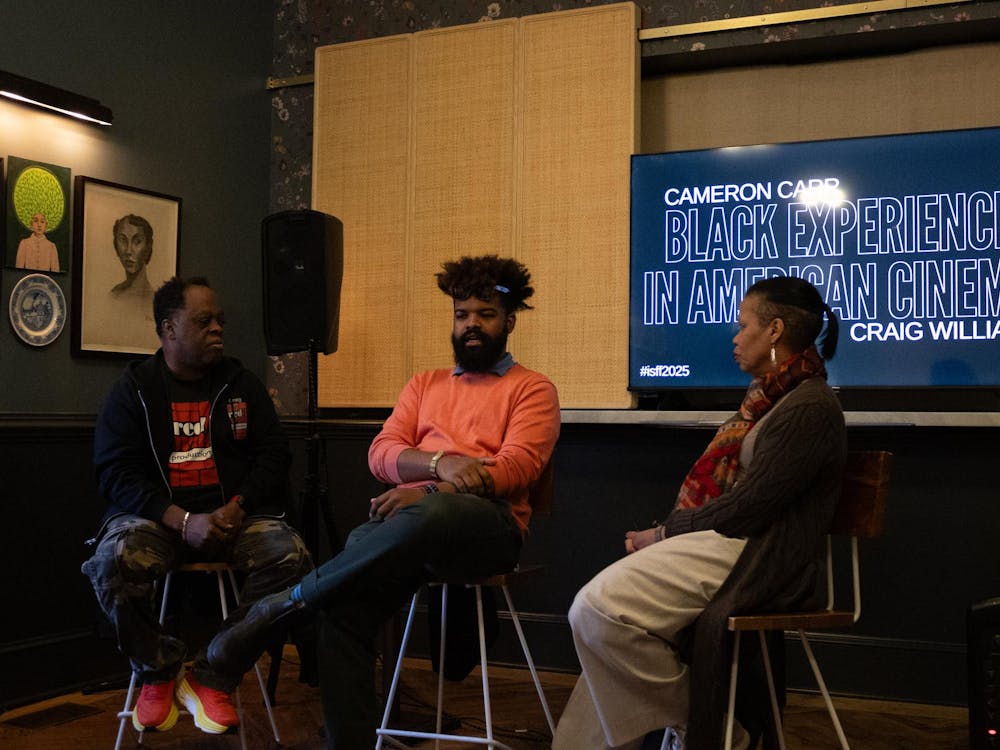The American music industry has not been kind to rock stars in the new millennium. Look no further than Maroon 5, who went from Songs About Jane to “Payphone” in seven years flat, to see that the most well-intentioned bands struggle in a world where candy-coated hooks out-chart blistering riffs every time. The rock and roll our parents knew — the hard-hitting, straightforward variety marked by grown men wearing their guitars across their chests and their hearts on their sleeves without a hint of irony — has long been replaced in the popular consciousness by the sub-genres for which it paved the way: punk-rock, alt-rock, pop-rock and countless variations featuring the word “electronic.”
Enter The Gaslight Anthem, a New Jersey foursome who might change the way our generation thinks about the dusty old Bruce Springsteen or Tom Petty record in our dads’ collections. Handwritten, the band’s fourth full-length album, hit number three on the Billboard 200 and is undoubtedly their most mature and accessible record to date.
The July 24 release has been met with a collective sigh of relief from the stingiest rock purists (Alternative Press, Absolute Punk) and hailed as a breath of fresh air in the mainstream trades (Entertainment Weekly, Rolling Stone).
The overarching consensus underlying the hype: American rock and roll is back in fashion, and Brian Fallon will gladly accept your handwritten thank-you notes for the favor. The frontman’s heartfelt delivery coupled with the insistent guitar of Alex Rosamilia produced a record that easily could have been released in the glory days of rock and roll but somehow manages to provide exactly what modern music has been missing.
The band’s unapologetic sincerity makes up no small part of its appeal. Fallon is not afraid to display his emotions. The first single “45” starts the album off with a question: “Have you seen my heart? / Have you seen how it bleeds?” Fallon’s lyrics weave together glimpses of blue-collar Americana (“We drink on the job, and we go home early / And I remember she used to look so good in that dress”) and poetic ruminations on modern life (“Now everybody lately is living up in space / Flying through transmission on invisible airwaves”).
Tales of romantic success and failure permeate the album. Fallon is never more at ease, or more captivating, than when he is at his most vulnerable. His emotions range from defiant on the mid-tempo jangler “Here Comes My Man” (“You know, I think I will grow my hair back out / Never mind what you think, never mind what you like”) to resigned on the achingly beautiful ballad “Teenage Rebellion” (“And if you’re gonna break my heart / Might as well be tonight”).
The title track is another standout, a hard-driving romp on which Fallon, his once distinctive throaty growl sounding more like The Boss with every “Whoa-oh!”, professes, “There’s nothing like another soul that’s been cut up the same.” But the band does just as well out of Springsteen country, exploring west of the Jersey Turnpike on the slow-burning “Biloxi Parish” and the gloriously staccato “Mulholland Drive.” By the end of the 14-track album, it’s clear that one of the most obviously derivative records in recent memory is also one of the most fresh and exciting.
I was fortunate enough to be at The Gaslight Anthem’s concert in New York City on the night of Handwritten’s release. A few songs into the set, Fallon quieted the crowd before bashfully telling us that when checking iTunes earlier, he saw that his “dumb little record is number one on the whole thing.” It struck me then that this band wouldn’t be playing venues like the standing-room-only Webster Hall very much longer — these guys are destined for, and deserving of, stadium arenas that sell out in a day.
Hey, a girl can dream.






